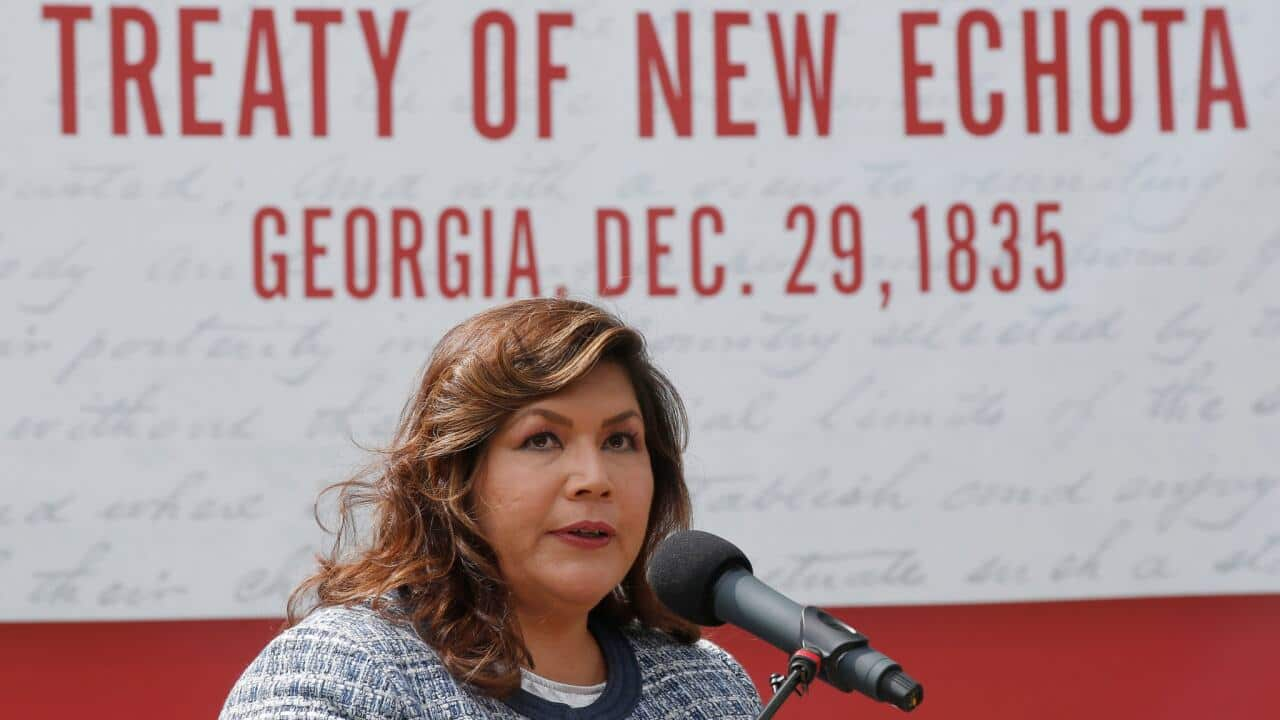For Native American tribes, treaties with the US government have often led to displacement, removal and outright erasure.
But now, the Cherokee Nation is turning to treaties signed in the 18th and 19th centuries to push for a delegate to Congress for the first time in history.
The treaties, the Nation claims, promised them a seat at the table.
“These treaties are sacred. They mean something. There’s no expiration date on them,” said Chuck Hoskin Jr., chief of Cherokee Nation, who last week announced he would fulfil a long-standing legal right to appoint a delegate to Congress. “What I’m asking is for the government of the United States to keep its word.”
Settled in northeastern Oklahoma after the Trail of Tears, the Cherokee Nation today has nearly 400,000 enrolled members, making it the largest of nearly 600 federally recognised Native American tribes.
There are also two significantly smaller, independent Cherokee tribes recognised by the federal government that are based in Oklahoma and North Carolina.
Their effort to seat a delegate in Congress — albeit, a nonvoting member — comes amid a broader push for visibility and political representation among Native Americans.
In November, Democrats Deb Haaland (Pueblo of Laguna) of New Mexico and Sharice Davids (Ho-Chunk Nation) of Kansas became the first Native American women elected to Congress.
Congress now has four Native American members.
The right for the Cherokee to send a “deputy” to represent them in the US Congress was first codified in the Treaty of Hopewell of 1785, which defined Cherokee borders and promised certain protections in return.
The right to send a “delegate” specifically to the House of Representatives was affirmed in the 1835 Treaty of New Echota.
It remains to be seen how the plan will be greeted by congressional leaders.
In his role as chief, Mr Hoskin has selected Kimberly Teehee as the delegate, who will now be considered by the Nation’s legislative branch this week.
He said he expected Teehee to be confirmed easily by the Nation.
Ms Teehee, who is currently the tribe’s vice president of government relations, has deep experience in Washington.
She was a senior policy adviser for Native American affairs during the Obama administration and, before that, was a congressional aide on Native American issues for more than a decade.
By Jose A. Del Real © 2019 The New York Times
Share

